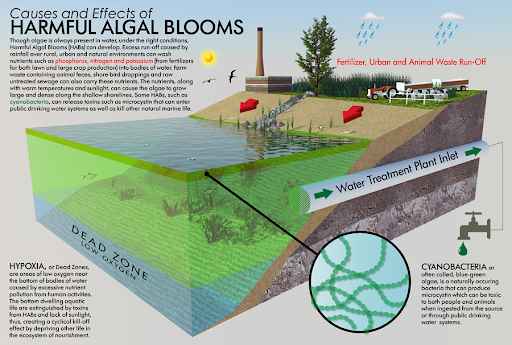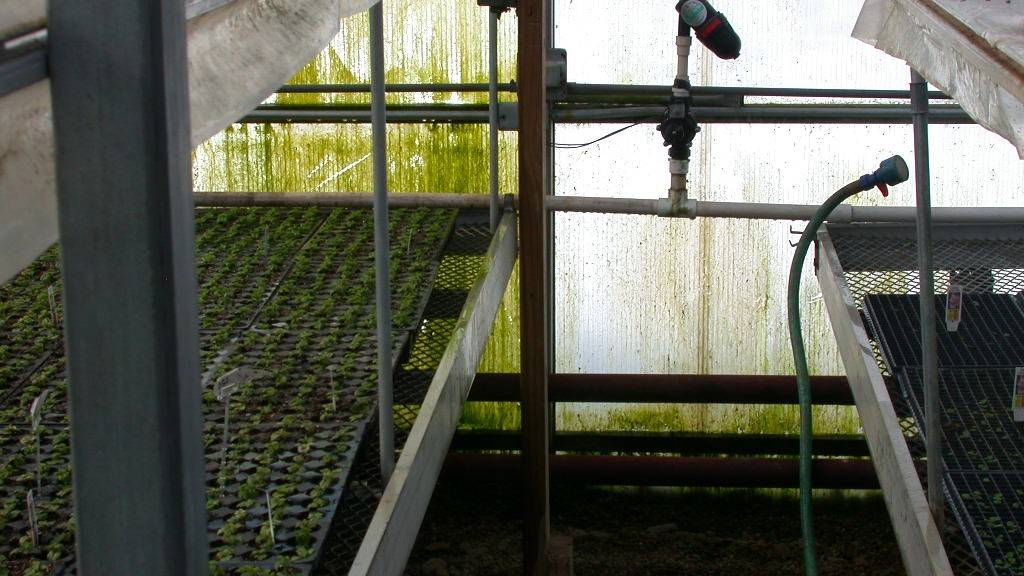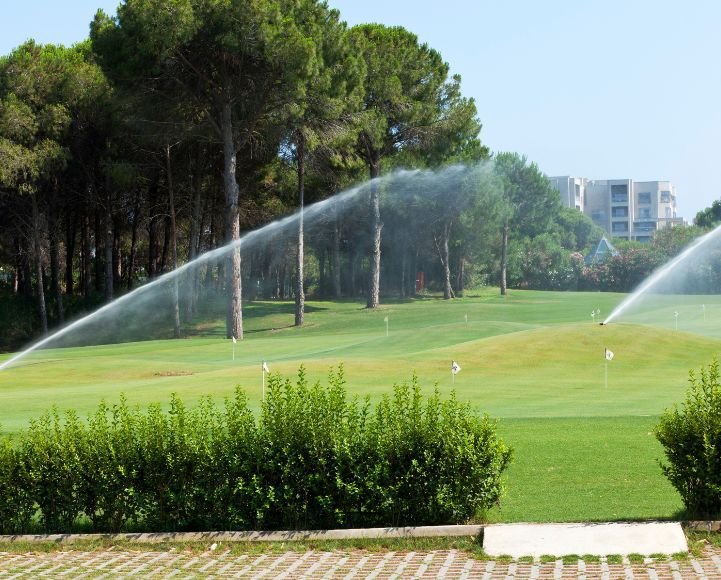Imagine walking through your flourishing garden or farm, only to find that your irrigation system is clogged with stubborn, slimy algae. It’s a common nuisance that can disrupt the flow of water and nutrients to your plants, potentially stunting their growth and diminishing your hard work.
But what if you could ensure a seamless, algae-free irrigation system that keeps your plants thriving all year round? You’ll discover practical and effective strategies to prevent algae growth in your irrigation systems, keeping your greenery lush and your mind at ease.
We’ll explore simple tips and tricks that can save you time, effort, and money. By the end, you’ll be equipped with the knowledge to maintain a clean, efficient system that supports the health and vitality of your plants. Don’t let algae get in the way of your gardening success—let’s dive into the solutions you need today!
Causes Of Algae Growth
Algae can be a nuisance in irrigation systems. It blocks water flow and clogs pipes. Understanding what causes algae helps in preventing it. Several factors contribute to algae growth.
Excess Nutrients
High nutrient levels encourage algae. Fertilizers often contain phosphorus and nitrogen. These elements feed algae. Runoff from fields can carry these nutrients. It leads to a perfect environment for algae.
Warm Temperatures
Algae thrive in warm water. As temperatures rise, algae multiply faster. Summer months see a spike in algae growth. Warm, stagnant water is a breeding ground for algae.
Sunlight Exposure
Sunlight aids algae growth. Direct sunlight increases water temperature. It also helps algae photosynthesis. Shaded areas see less algae growth. This is because sunlight is limited.
Stagnant Water
Moving water deters algae. Stagnant water provides a home for algae. Lack of water circulation boosts algae growth. Pumps and filters can help circulate water. Keeping water moving is crucial.
Contaminated Water Sources
Contaminated sources introduce algae spores. Dirty water can carry algae. Regular testing of water sources is vital. Clean water sources reduce algae problems.

Choosing The Right Filtration System
Choosing the right filtration system is vital in preventing algae growth. A good filtration system helps maintain clean water in irrigation systems. It removes particles and debris, reducing the chances of algae forming. Understanding different filtration types will guide you to the best choice. This section explores key factors to consider.
Understanding Filtration Needs
Identify your irrigation system’s specific needs. Consider water source and flow rate. Different systems require unique solutions. Ensure the filter matches these needs. This minimizes clogging and maximizes efficiency.
Types Of Filtration Systems
Several filtration systems exist for irrigation use. Screen filters are common and cost-effective. They trap large particles and are easy to maintain. Sand filters provide deeper filtration. They work well with organic materials in water.
Considering Maintenance And Cost
Maintenance is crucial for filtration systems. Regular cleaning ensures optimal performance. Choose a system that suits your maintenance capacity. Cost is another factor. Balance upfront costs with long-term benefits.
Evaluating Environmental Impact
Consider the environmental impact of your filtration choice. Opt for systems that conserve water and energy. Sustainable choices benefit both your system and the planet. Research and select eco-friendly options.
Consulting With Experts
Seek advice from irrigation experts. They can provide insights specific to your situation. Expert guidance ensures you make an informed decision. This helps in choosing a system that meets your needs.
Maintaining Water Quality
Maintaining water quality is crucial for preventing algae growth in irrigation systems. Algae can clog pipes, damage crops, and increase maintenance costs. Keeping water clean helps ensure efficient irrigation. This section explores methods to maintain water quality in your systems.
Monitor Water Sources
Regularly check the water source for contamination. Polluted water can introduce algae into the system. Test water quality to detect any impurities early. Early detection helps prevent algae from spreading.
Use Filtration Systems
Install filters at the water entry point. Filters remove particles that promote algae growth. Clean filters frequently to maintain their effectiveness. A clean filter keeps algae at bay.
Control Nutrient Levels
Algae thrive on nutrients like nitrogen and phosphorus. Reduce these nutrients in your water. Use nutrient management practices to control their levels. Controlled nutrients discourage algae formation.
Apply Algaecides
Use algaecides to treat water. Algaecides kill existing algae and prevent new growth. Choose eco-friendly options to protect the environment. Regular applications maintain water quality.
Adjust Water Ph
Maintain a balanced water pH level. Algae prefer alkaline environments. Test and adjust pH to discourage algae. A balanced pH keeps irrigation systems algae-free.

Regular System Maintenance
Regular maintenance is crucial to prevent algae growth in irrigation systems. Algae can clog pipes and nozzles, reducing efficiency. Consistent upkeep ensures a smooth operation and reduces long-term costs. This section delves into essential maintenance practices.
Inspect And Clean Filters
Filters are your first line of defense against debris. Check them weekly. Remove any clogs promptly. Dirty filters can lead to algae growth. Clean them regularly to maintain water flow.
Check For Leaks
Leaks create stagnant water areas. These are perfect for algae. Inspect the system for leaks monthly. Repair any damages immediately. This keeps the water moving efficiently.
Adjust Water Pressure
Low pressure increases algae risk. Ensure the system has adequate pressure. Adjust settings for optimal flow. This prevents algae build-up in pipes.
Monitor Water Quality
Water quality affects algae growth. Test the water for contaminants. Poor water quality can encourage algae. Keep it clean for a healthy system.
Schedule Professional Maintenance
Professional checks are invaluable. Hire experts yearly for thorough inspections. They can spot issues early. This prevents extensive algae problems.

Conclusion
Preventing algae growth in irrigation systems is essential. Clean systems work best. Regular maintenance keeps algae away. Check your system often. Use filters to block debris. Consider safe chemicals for stubborn algae. Sunlight can boost algae growth. Shade your water sources when possible.
Small steps can make a big difference. Protect your crops and save water. Keep your irrigation system algae-free. Simple actions lead to healthier plants. Follow these tips for a clean system. Enjoy efficient watering all year round. Stay vigilant and proactive.
Your plants will thank you.


